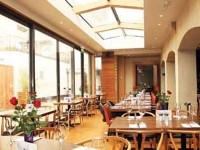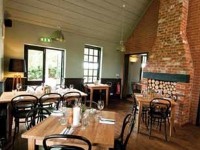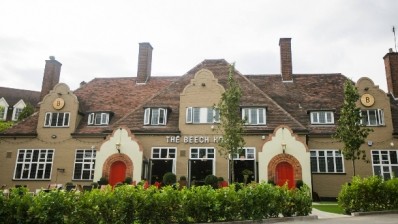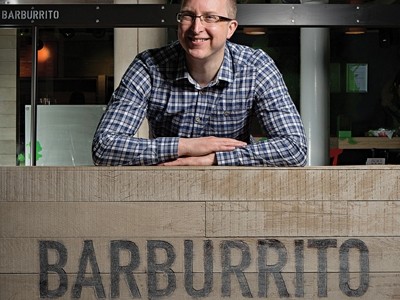Business Profile: Oakman Inns & Restaurants
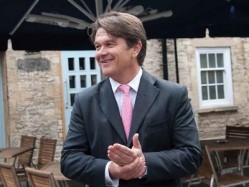
Never short of ambition, Oakman Inns founder Peter Borg-Neal has set himself a not inconsiderable task: that of redefining the public house. But walk into the Kings Arms, a traditional-looking prime-site pub in the affluent Hertfordshire commuter town of Berkhamsted, on a weekday mid-morning and you might start to believe he can achieve this aim. The place is buzzing with a mixture of late breakfasters, business types meeting next to the open fire, the pushchair brigade tucking into lattes and croissants, and those having a quick drink before settling down to lunch in the dining area.
Rather than conforming to one of the standard if outdated independent pub models – a high-footfall, wet-led boozer or an out and out food destination – Oakman is seeking to be all things to (almost) all people throughout the day.
“A public house serves people what they need – be it a drink, a snack or a more formal meal,” says the fast-talking Borg-Neal. “We’ve adjusted that for our community in market towns in the south-east of England. It happens that they don’t want a microwave meal, they don’t want to play pool and darts, and they don’t want coffee from a ‘pour-and-serve’ machine.”
Instead, as the Kings Arms testifies, customers want breakfast available until 3pm, a place where you can drop in to read the paper, where lunchers can enjoy a light dish or a hefty steak, where the young crowd can drink at the bar on a Friday night and where families can host special occasion dinners – all rolled into one integrated venue.
“Some people use it as a café, others as a restaurant,” adds Borg-Neal. “It’s blurred, but I think they are still pubs.
King of the all-day trade
Semantics aside, Oakman has evidently cracked the all-day trading nut in a number of its half-dozen sites, spread across Oxfordshire, Hertfordshire and Buckinghamshire. Founded in 1997 by pubco director-turned-restaurant entrepreneur Borg-Neal, the group’s total revenue is set to hit £9m in this financial year (2012/13), with the aforementioned Kings Arms leading the way by notching up almost £2m in sales.
Aside from the Berkhamsted site, Oakman operates a further four market-town pubs and another in a more rural location (Red Lion at Water End, Hertfordshire). It is also a major investor in award-winning gastropub The British Larder in Bromeswell, Suffolk, though that is largely run as a separate business.
It has just begun operating The Cook & Fillet, a newly redeveloped country inn on the A41 in Buckinghamshire between Aylesbury and Bicester Village. The site is owned by Bob Williams, a former boss of Borg-Neal’s, who sought out his ex-colleague with a view to Oakman taking the business off his hands. The company is now running the pub, and is likely to negotiate a long-term lease in the near future.
Crucially, the business also includes a farm shop in the same building. “I’ve been thinking of ways of generating daytime trade for the businesses that are more rural. The obvious solution is a farm shop of some kind. I was considering bolting one on to the Red Lion, but this gives me a ready-made opportunity,” says Borg-Neal.
The Oakman team aims to tweak the farm-shop format to become more food-driven, and use it as part of the eat-in offer. “We’re looking at how to integrate the retail and restaurant sides: perhaps the starter section should be dominated by produce served directly from the shop, with ham carved to order, salamis, cheeses, that sort of thing. At the moment, the space works in the day but at night the [shop] lights are turned off and the food taken away – it looks like a half-closed business.”
Open-minded approach
It’s this sort of open-minded thinking that characterises both the man and the company. On taking over the Red Lion in late 2009, Oakman installed a wood-fired pizza oven and the pub now specialises in authentic Neapolitan pizzas and other Italian fare – a sector Borg-Neal knew from one of his previous restaurant formats, Forno Vivo.
While it’s an unusual route for a country pub, it appears to be paying dividends.
In a few weeks, the company opens its latest venture, The Beech House in Beaconsfield, Buckinghamshire. It’s another shift into new territory in that Oakman has redeveloped a retail unit, rather than taking on a historic building as it has done in the past.
“We’re having to put features into it to create some atmosphere,” he says. “But if we can pull this off, it could mean we move forward quicker as it avoids the nightmare of working on listed buildings. In many market towns, the lovely old buildings are also unlikely to come up for sale, so this option gives us a new angle of attack.”
Indeed, planning delays have hampered the redevelopment of another unit in the Oakman portfolio, The Crown & Thistle in Abingdon, Oxfordshire. It will eventually reopen later this year, and Borg-Neal aims to add a further string to the company bow alongside it. “I’m interested in making the whole experience more exciting for foodies by having a means of production on site. I’m thinking about a coffee roastery, bakery or microbrewery in Abingdon.”
Expansion
Expansion-wise, he anticipates two to three new outlets a year with a view to staying as hands-on as possible. “My biggest fear is pressing the accelerator too early and having to drop quality. Obviously I have to recruit people that share our values, so I don’t have to interfere as much, but it’s important that I continue to touch and feel it.”
The company’s head-office function is well set up for growth, with a finance director, operations manager, HR manager and marketing manager all in place. Income from the existing pubs has now overtaken what has been invested to date, according to Borg-Neal, but is not yet sufficient to cover capital expenditure for future sites. “Next year, I’d like to get to the point where we can fund a new unit out of cashflow.”
Grand designs
Oakman appears to be thriving in a sector that has largely struggled in recent years. So how does it achieve the aim of catering to a variety of customer groups – and, indeed, the same groups on different occasions – so successfully? In part, it comes down to the sites’ design: most have a traditional pub façade and beamed bar area, but gradually morph into a clean and contemporary dining room at the rear. Crucially, the areas are not strictly delineated and are connected by a single, long bar that turns into an open kitchen counter.
“Open-plan kitchens work better for the chefs as they’re engaged with what’s happening in the restaurant. But the biggest thing is theatre. It puts atmosphere in even if it’s quiet. In The Akeman [in Tring, Hertfordshire] they had a basket full of Yorkshire puddings on the counter on Sunday, which everyone was oohing and ahhing over."
The food offer is not designed to push boundaries, but rather to deliver fresh, tasty dishes across different parts of the day. It means menus are extensive: from pancakes and granola at breakfast via Mediterranean flatbreads, sharing platters and salads at lunch through to more intricate monkfish and pork belly dishes at dinner.
“We’d like to concentrate the menu and move nearer the quality served in a Michelin-starred place in terms of ingredients and cooking skills, but not in terms of originality perhaps,” he adds.
Driving force
Now 51, Borg-Neal remains the driving force of Oakman, a business he sees as the culmination of a 35-year career in the hospitality trade. “You stand in the corner and watch people having a great time in a place that you’ve created – that’s the highlight. But everywhere you go you learn; every time you see something, you read something or you go out to eat, you’ve got to be a sponge.”
He cites a recent trip to Paris, where The British Larder’s debut publication triumphed at the Gourmand World Cookbook Awards, and the fact that people were queuing round the block for expensive macaroons packaged up like jewellery.
Rather than simply thinking how crazy they were, he set about analysing the appeal. Borg-Neal’s energy and dynamism, combined with a supportive board of backers, the company’s strong investment in people and its flexible strategy is driving the pub model forward.
“We’re looking to build - rather than build to a certain scale and then exit. It could be I’m still here in 20 years,” he says. By then, the great British pub will surely have been well and truly reinvented – and it’ll be time to start again."
This article first appeared in the April issue of Restaurant magazine.
